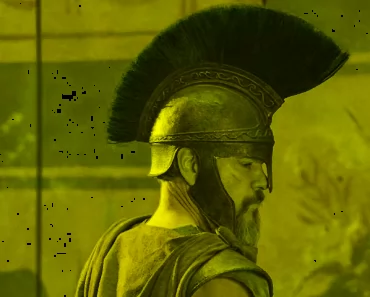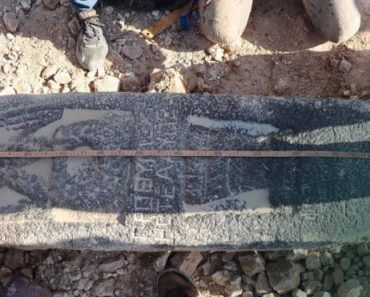
On May 12, 1984, one of Latin America’s greatest writers, Jorge Luis Borges, gave a moving speech in Rethymno, Crete, that served as an ode to Greece and its civilization.
Borges stood at a ceremony, in which the Faculty of Philosophy of the University of Crete awarded him an Honorary Doctorate Cause. He felt the presence of a history far grander than his own, a history that had shaped his very soul.
He began speaking in English, his voice soft but resonant. He apologized, a sincere shame in his words for not knowing the language of this sacred place.
He searched for a metaphor, the poet’s first refuge. “It is a homecoming,” he declared, the thought settling over him with the weight of ages. “A return like that of Ulysses to Ithaca.” He smiled faintly. It had taken Ulysses ten years, but it had taken him, a man of letters from a distant continent, twenty-five centuries. He had come to thank the land where it all began: reflection, dialectics, poetry, and philosophy.
“Perhaps Magna Graecia is the whole world”
Yet, a second, stranger metaphor tugged at his mind. “The feeling that I have always been here.” He recalled his father’s words, the old man’s quiet reflection on Magna Graecia—”Perhaps Magna Graecia is the whole world.” This was a truth Borges had carried with him for a lifetime. The Greek spirit, he realized, was not confined to these shores; it was a universal current flowing through his own life.
He spoke of his childhood, his earliest literary loves: the fables and tales, but always, always the Greek myths. He remembered his father introducing him to Zeno’s paradox, the nightmare of a race that would persist forever—and then, the myth of the labyrinth.
This was the one that had possessed him, a source of both fear and hope—for if the world was a chaotic mess, he knew they were lost. But if it was a labyrinth, then there was a plan, a purpose, a secret design hidden within the apparent chaos.
Jorge Luis Borges: “A Greek exiled in South America”
Borges had spent his life in this pursuit, reading and writing, finding joy in the very act of seeking. He had found his path in the poetry and philosophy gifted to the world by Greece—not just the answers but the eternal questions.
As he concluded, he offered them a choice. “You can see me as a Greek exiled in South America, now returned to his homeland,” he said, “or you can say that I have always been in Greece—not physically, but spiritually.”
He wanted them to understand, to feel, the happiness he felt in that moment. He would be there forever, he promised, even when his body was absent, a timeless echo of a poet’s profound homecoming.







